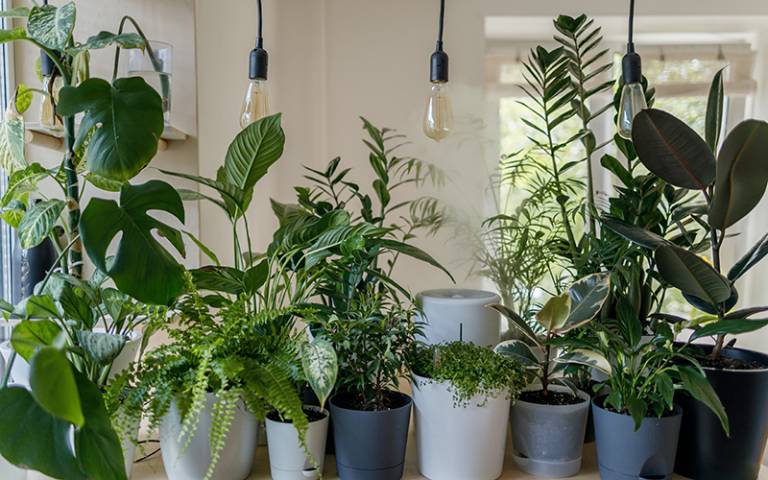Fully funded PhD studentship on enhancing a balanced Microbiome for healthier indoor environments
16 December 2022
Applications are now open for a proposed studentship in 'Enhancing a well-balanced Microbiome for healthier indoor environments', as part of 60 studentships to be awarded by the UCL EPSRC DTP.

About the project
Project title: Enhancing a well-balanced Microbiome for healthier indoor environments
Project supervisors: Dr Hector Altamirano, Dr Lena Ciric
Project ID: 2228bd1084 (You will need this ID for your application)
We have learnt from the COVID-19 pandemic that apart from vaccines that significantly reduce the risk of infections, social distancing and cleaning regimes are still the primary defence used to reduce pathogenic organisms in buildings. However, infections are rising, and pathogens that cannot be treated with any available antibiotic are always likely to develop. Hence, new ways to improve our cities, and enhance the health and well-being outcomes of buildings need to be developed. Studies have found that the major components of the indoor microbiome (the microorganisms existing in a particular environment) are species derived from occupants' microbiomes (e.g., bacteria; there are trillions in the human body), which can pose a significant health risk. Several factors, including occupancy and ventilation, influence the indoor microbiome. However, the role of plants in modifying the indoor microbiome and the pathogen load within a space is yet to be studied. It is believed that a space containing plans is healthier because of the perceived connection with nature; however, the reason may be different and related to the plants' microbiomes’ role in fighting indoor human pathogens.
This project aims to assess the effect of plants on modifying and reducing the number of human pathogens in the air and on surfaces.
The proposed methodology includes: (1) Identifying indoor plants harbouring microbes that have an antagonistic effect against common human pathogens. (2) Carrying out experimental work to establish how environmental parameters usually found indoors (air movement, temperature, and relative humidity) affect plants and the release of their microbes. (3) Establishing ways to boost the release of microbes and their impact on human pathogens. (4) Assessing the biome of various building typologies (office, schools, and homes) with and without plants to evaluate (monitor and air sampling) the effect of plants on different setups.
About the Supervisory Team
Primary Supervisor: Dr Hector Altamirano
Subsidiary supervisor: Dr Lena Ciric
The proposed team brings together expertise on a) the health impact of buildings, operational performance of the indoor environment, building physics, in-situ monitoring and b) Infectious diseases, molecular bacteriology and culture methods, antimicrobial resistance, and engineering to reduce pathogenic organisms. They collaborated previously on investigating mould contamination in public housing.
Key information
Funder: UCL ESPRC DTP studentship
Value: Fees, Stipend (at least £20,668 per year), Research Training Support Grant
Duration: Up to 4 years (thesis to be submitted within funded period)
Eligible Fee Status: Home, International (EPSRC caps the total number of funded International fee status students across UCL for this award at 30%)
Study Mode: Full or Part time (at least 50% FTE) [Note: Part time is not available to International students]
Primary Selection Criteria: Academic merit
Project ID: 2228bd1084 (You will need this ID for your application)
Application Deadline: 12:00 on 26 January 2023
How to apply
This PhD Studentship topic is one of 19 proposed by The Bartlett School of Environment, Energy and Resources to a competition for approximately 60 studentships that will be awarded across UCL as part of the UCL EPSRC DTP. Prospective students are welcome to apply for up to 5 potential studentships - see the full list of projects from our department and the UCL project database for a comprehensive list across the university. The 60 successful proposals will be chosen following applicant interviews.
Before applying, all applicants must read the full eligibility criteria and application guidance on the UCL EPSRC DTP website. There is a 3-part application process, with a deadline of the 26 January 2023 to complete the third part of the application.
 Close
Close

